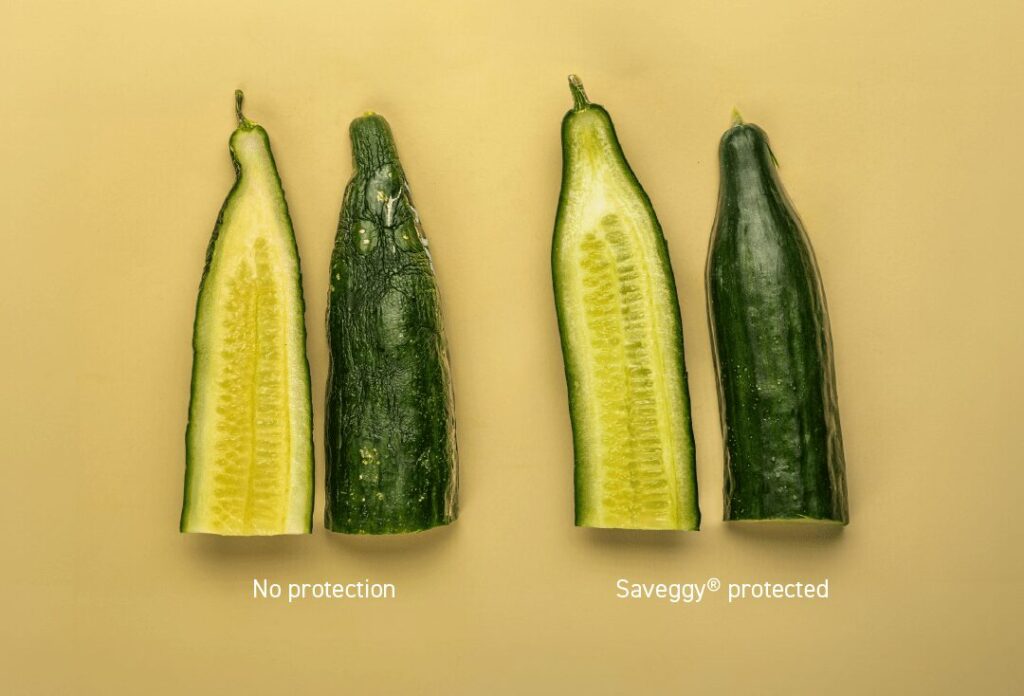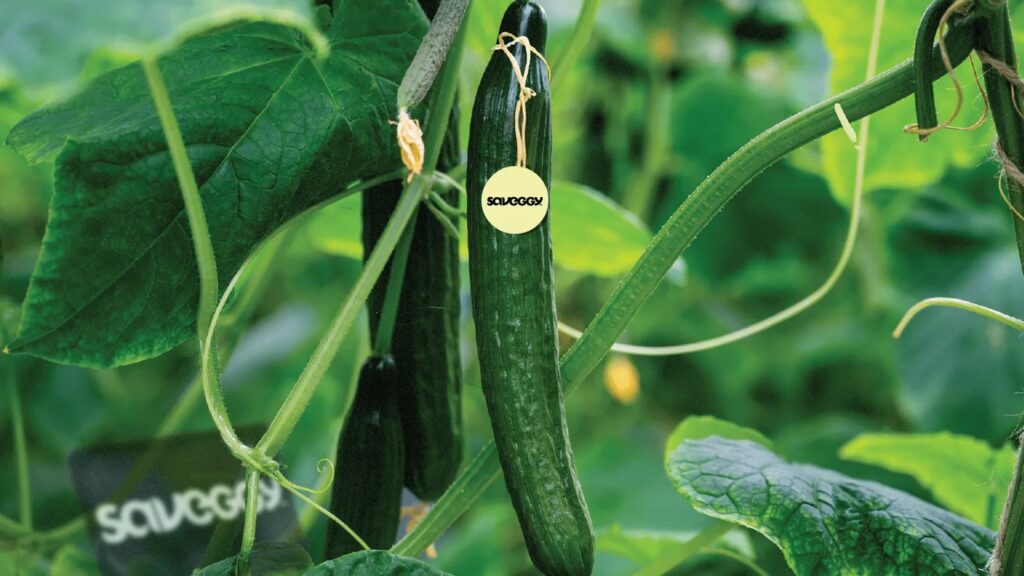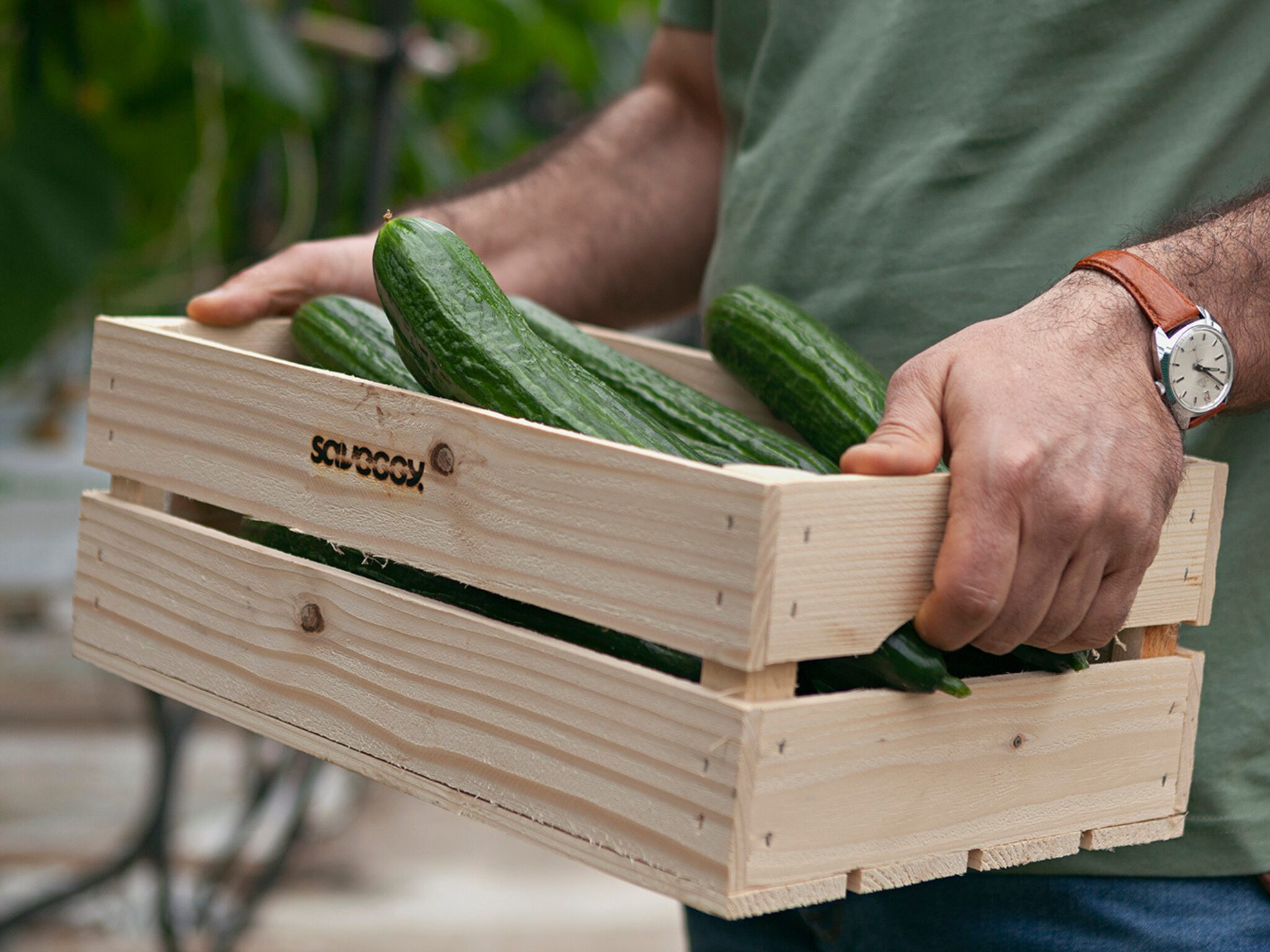4 Mins Read
Swedish packaging solutions startup Saveggy has raised SEK 20M (€1.76M) to scale up its plastic-free, plant-based coating for fruits and vegetables, starting with cucumbers.
Lund-based Saveggy’s latest funding round of €1.76M was led by Unconventional Ventures, with additional participation from LRF Ventures, Almi Invest GreenTech, and angel investors.
With the twin goal of reducing plastic pollution and food waste, Saveggy will use the funds to produce its edible plant-based coating for fruits and vegetables at an industrial scale. Its first product is called SaveCucumber, which features a thin, invisible layer made from oats and rapeseed oil.
“We believe that freshness, the health of our planet, and the well-being of people should always remain uncompromised,” said co-founder and CEO Arash Fayyazi. “With this financing round, we will launch at industrial scale our first product.”
The pedigree of Fayyazi and his co-founder Vahid Sohrabpour (who is the chief innovation officer) was a major attraction for its lead investor, with Unconventional Ventures general partner Thea Messel saying: “Our investment in Saveggy was driven by the impressive credentials and substantial expertise of its founders. Their innovative technology tackles the significant challenges our food systems face.”
Killing two birds with one coat

Fayyazi and Sohrabpour launched Saveggy in 2020, describing it as a modular, customisable protection technology that can meet the requirements of different fruits and vegetables. According to the UN FAO, 45% of the world’s fruits and vegetables end up going to waste. Globally, we bin a billion household meals every single day, despite 780 million people (just under 10% of the population) facing hunger.
According to the UNEP, food waste contributes to 8-10% of global emissions. Making significant reductions in the amount of food we throw away is crucial to achieving climate and sustainable development goals relating to global heating, food security and biodiversity protection.
Meanwhile, plastic pollution – which relies on petroleum-based products – contributes to 3% of all greenhouse gas emissions (which is higher than the emissions impact of the aviation industry). Single-use plastics like those used in food packaging are devastating to the planet, especially marine life and aquatic systems, which end up back in our food system and present health threats to humans as well.
Plastic packaging is a massive problem for the food industry’s emissions (which account for a third of all emissions). In the US, for example, 63% of all municipal solid waste generated in 2014 comprised packaging materials for food and other purposes – only 35% was recycled or composted. But plastics offer a few key advantages for companies: they’re cheap to produce, they prevent water loss, they keep bacteria out, and they prolong the shelf life of produce.
Clearly, though, better solutions are needed. Saveggy’s offering isn’t a like-for-like substitute for plastic – it’s an altogether packaging-free alternative. It will benefit fruits or vegetables that have edible peels, adding a thin layer of its zero-additive plant-based coating that preserves freshness and shelf life.
Cucumbers, for example, which are 95% water and where moisture retention is crucial for freshness – after all, nobody likes a limp, shrivelled cucumber. Saveggy’s SaveCucumber innovation acts as a protective shield, preserves the water content, and slows down oxidation, extending the shelf life of an uncoated, unpackaged cucumber by three to four times.
Impressing legislators and investors alike

“We are excited and proud to support the team at Saveggy and their innovation in reducing food waste, advancing sustainable agriculture, and proactively complying with upcoming plastic waste regulations,” said LRF Ventures investment director Martin Alexandersson.
In March, the EU agreed to ban single-use plastics for fresh fruit and vegetable packaging (among other applications), in response to the rise in packaging waste in the region. This means all packaging in the bloc must be recyclable by the end of the decade, and starting next year, recyclable packaging will need to be recycled at scale – in 2020, only 38% of plastic packaging waste in the EU ended up being recycled.
Such regulations will raise the stock of startups like Saveggy, which claims to be the only plastic packaging alternative offering the same shelf life extension, and the only company to be given the all-clear from the EU for edible fruit and produce coatings. And the bloc has recognised its potential too, with the European Research Agency and the European Commission providing it with a €440,000 grant under the Eurostars programme last year.
For its SaveCucumber product, cucumbers are harvested, washed and dried, before being coated with the invisible layer. The company is also working on similar coatings for other produce like bananas, bell peppers and aubergines. Its investors will now look to leverage their supply chain networks to extend Saveggy’s presence to more distributors.
“We were particularly impressed by the founders’ perseverance, having refined their formula multiple times to meet the highest standards,” said Messel. “This unwavering commitment to innovation and sustainability aligns perfectly with our mission as impact investors and made our decision to partner with them clear.”
Saveggy is testing its products with partners, and will enter a market populated by the likes of industry leader Apeel (US), Sufresca (Israel), PolyNatural’s Shel-Life (Chile) and Liquidseal (Netherlands), all of which are making plant-based coatings for fruits and vegetables. Boston-based Foodberry (formerly Incredible Foods), meanwhile, is reverse-engineering fruit skins to make edible packaging for snacks.



